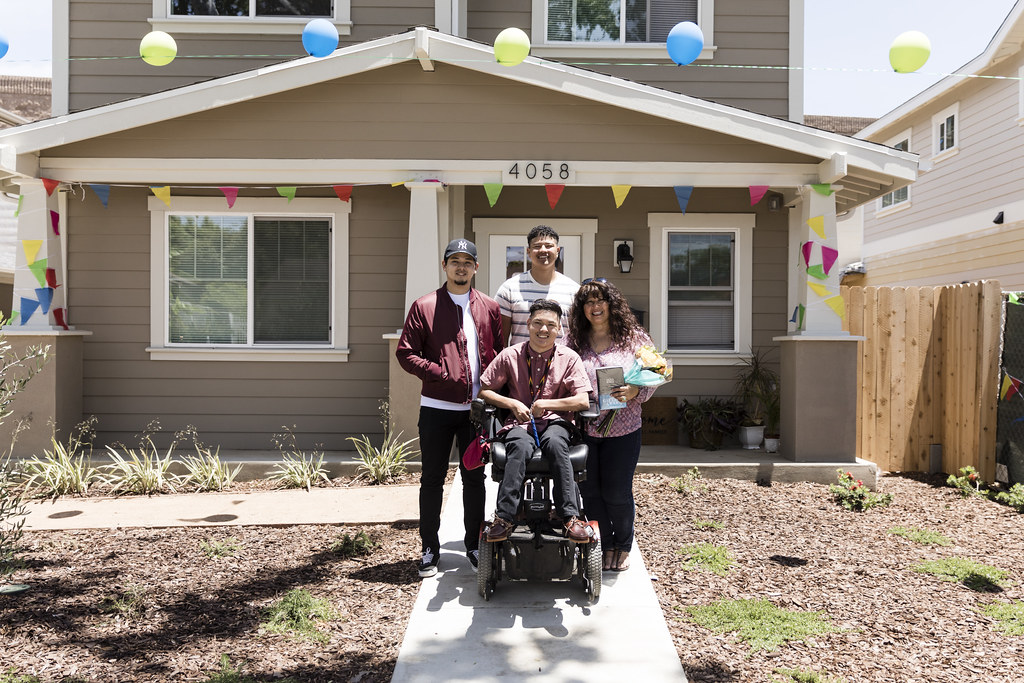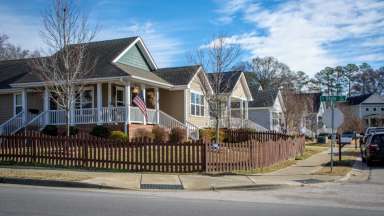Budget Friendly Homeownership Options for First-Time Homebuyers
As the real estate market proceeds to evolve, new homebuyers face unique obstacles in securing affordable homeownership alternatives. Different sources, including entitlement program programs, low-down-payment home mortgages, and targeted gives, have arised to alleviate monetary stress. These campaigns not only facilitate homeownership however also foster neighborhood stability and financial development. Browsing these alternatives can be complex, and understanding which pathways are most advantageous needs careful consideration. What techniques can prospective property owners use to optimize their possibilities in this landscape?
Federal Government Assistance Programs
Entitlement program programs play an important function in making homeownership possible for many people and households. These programs intend to reduce the financial problem connected with purchasing a home, particularly for novice buyers. By supplying financial assistance, gives, and tax rewards, government initiatives help link the space in between rising housing costs and the acquiring power of potential home owners.
Numerous programs are readily available at the government, state, and neighborhood degrees. For instance, the Federal Real Estate Administration (FHA) provides insurance on finances, permitting loan providers to use extra positive terms, such as reduced down repayments and minimized rate of interest. In addition, state and local governments typically have their very own initiatives, which may consist of deposit help programs, buyer education training courses, and favorable mortgage terms.
These programs are created to deal with the unique difficulties encountered by low- to moderate-income family members, including limited cost savings and credit report. By promoting a setting where homeownership is extra accessible, entitlement program programs not just support specific goals however likewise add to neighborhood stability and economic growth. Understanding and making use of these resources can significantly improve the leads of effective homeownership.
Low-Down-Payment Home Mortgages
For several hopeful home owners, low-down-payment mortgages provide a sensible path to homeownership, particularly in today's challenging housing market. These home mortgage options commonly require deposits varying from 3% to 5%, making it less complicated for first-time purchasers to go into the market without the problem of conserving for a substantial down repayment.
Different loan providers provide low-down-payment programs, consisting of traditional fundings backed by Fannie Mae and Freddie Mac, in addition to government-backed options like FHA car loans. These home loans are created to fit people with limited savings while still offering competitive rates of interest. Significantly, they enable buyers to preserve even more money for various other important expenditures, such as moving costs, home examinations, and prospective improvements.
However, prospective homeowners must bear in mind the trade-offs connected with low-down-payment mortgages. A smaller sized deposit may lead to greater monthly repayments and the need of exclusive mortgage insurance policy (PMI), which secures lending institutions in instance of default. As a result, it is important for new buyers to carry out comprehensive research and speak with mortgage specialists, guaranteeing they select a low-down-payment alternative that straightens with their long-term economic goals. Affordable Homeownership.
First-Time Buyer Grants
Numerous first-time property buyers discover that grants can significantly reduce the financial concern of buying a home, enhancing low-down-payment mortgage choices. These grants, usually given by state and neighborhood federal governments or non-profit organizations, provide financial assistance that does not need payment, making them an appealing option for those entering the housing market.
Qualification for newbie buyer grants normally depends on revenue, creditworthiness, and the purchase cost of the home. Numerous programs are designed to help reduced- to moderate-income families, making sure that support reaches those that require it most. The application process commonly includes documents of economic status, property buyer education programs, and often even a commitment to stay in the home for a particular period.
The amount of help differs extensively, with some gives offering several thousand bucks to help cover closing prices or deposits. Looking into readily available gives in your location is important, as programs frequently transform and may have certain requirements. By leveraging these monetary resources, newbie buyers can make homeownership much more accessible, ultimately accomplishing their imagine having a home while minimizing the more first economic stress.
Innovative Community Campaigns
Innovative community efforts are playing a crucial duty in expanding budget friendly homeownership options for citizens. These campaigns commonly include joint initiatives between neighborhood governments, charitable organizations, and exclusive market stakeholders to develop lasting housing solutions tailored to area requirements.
One noteworthy method is the facility of neighborhood land counts on (CLTs), which permit locals to buy homes while the land continues to be had by the trust fund. This version assists maintain cost gradually and protects against speculative rate rises. Furthermore, CLTs typically give educational sources and assistance solutions to encourage first-time property buyers.
One more efficient effort is the growth of mixed-income real estate projects, which blend inexpensive units with market-rate homes. This approach cultivates comprehensive areas and decreases the preconception commonly connected with low-income housing. Local governments are significantly sustaining zoning reforms to facilitate the building of accessory home devices (ADUs), which can provide extra rental income for property owners while raising real estate accessibility.

Tips for Budgeting and Saving

Next, develop a dedicated interest-bearing account specifically for your future home acquisition. Aim to save a portion of your revenue regularly, preferably 20% or more, to build a considerable down repayment. Utilize automation devices, such as straight down payment or automatic transfers, to make saving less complicated and much more consistent.
In addition, take into consideration taking on the 50/30/20 rule: allocate 50% of your earnings to needs, 30% to wants, and 20% to cost savings official website and debt payment - Affordable Homeownership. This approach advertises balanced financial health and wellness

Verdict
In recap, economical homeownership options for first-time buyers incorporate different resources such as government aid programs, low-down-payment home mortgages, and grants. These initiatives not just help with access right into the housing market but likewise advertise neighborhood stability and financial development. By leveraging these monetary devices, individuals can browse the intricacies of homeownership, eventually adding to a more equitable housing landscape. Proceeded support and understanding of these programs are essential for improving availability to homeownership possibilities.
As the housing market proceeds to evolve, newbie buyers face special challenges in safeguarding budget friendly homeownership alternatives. By fostering an atmosphere where homeownership is more available, government aid programs not only support specific aspirations however also add to neighborhood stability and financial growth. By leveraging these economic resources, newbie homebuyers can make homeownership extra obtainable, ultimately attaining their dream of owning a home while alleviating the first financial strain.
In recap, budget-friendly homeownership choices for new buyers include different resources such as federal government help programs, low-down-payment home loans, and gives. By leveraging these monetary tools, people can browse the intricacies of homeownership, inevitably contributing to a more fair housing landscape.